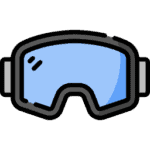Federal Civil Complaint for violation of copyright.
As a general matter, copyright infringement occurs when a copyrighted work is reproduced, distributed, performed, publicly displayed, or made into a derivative work without the permission of the copyright owner.
Copyright infringement can be a felony or a misdemeanor. A felony charge must involve an infringement of the copyright owner’s reproduction or distribution rights. A felony conviction carries a maximum sentence of five years in prison and a maximum fine of $250,000.
Copyright infringement is using someone else’s work without getting that person’s permission. … The owner of a copyright gets to decide who can legally make copies of that work. It is illegal to copy large sections of someone else’s copyrighted work without permission, even if you give the original author credit.
The legal penalties for copyright infringement are: Infringer pays the actual dollar amount of damages and profits. The law provides a range from $200 to $150,000 for each work infringed. Infringer pays for all attorneys fees and court costs.
US District Court for the Eastern District of Michigan
 Motion for Discovery Impeaching Information
Motion for Discovery Impeaching Information
 Flowcart Divorce with Children-Family Law
Flowcart Divorce with Children-Family Law
 Unopposed Motion for Leave to File First Amended Complaint and Jury Demand
Unopposed Motion for Leave to File First Amended Complaint and Jury Demand
 Dispositional Attachment Removal From Custodial Parent—Placement With Nonparent-Juvenile Family Law
Dispositional Attachment Removal From Custodial Parent—Placement With Nonparent-Juvenile Family Law










 Flowcart Divorce with Children-Family Law
Flowcart Divorce with Children-Family Law  Unopposed Motion for Leave to File First Amended Complaint and Jury Demand
Unopposed Motion for Leave to File First Amended Complaint and Jury Demand  Dispositional Attachment Removal From Custodial Parent—Placement With Nonparent-Juvenile Family Law
Dispositional Attachment Removal From Custodial Parent—Placement With Nonparent-Juvenile Family Law